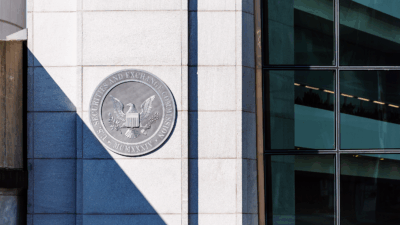Hedge Funds Oppose India’s New ‘End Investor’ Disclosure Rule
The new regulations follow a dustup between US-based short-seller Hindenburg Research and Adani Group.

Sign up for smart news, insights, and analysis on the biggest financial stories of the day.
If foreign short-sellers are going to make India’s markets miserable, the country’s Securities and Exchange Board (SEBI) wants to be able to see them coming. But big overseas hedge funds are furious about new transparency rules requiring them to reveal all their “end investors.”
Short End of the Stick
Most short-sellers stay behind the scenes, quietly placing their bets on companies they consider overvalued and destined to see their stock fall. But some take it further, taking short positions and then publicly trumpeting their case to the outside world — and often immediately profiting from a stock decline. In early 2022, short-selling firm Hindenburg Research took on Indian conglomerate Adani Group, which Hindenburg accused of “brazen stock manipulation and accounting fraud scheme over the course of decades.” In just a few days, Adani lost more than $100 billion in value as investors fled.
Foreign investment groups, which believe SEBI’s new rules create an extremely difficult process for putting money into Indian markets, aren’t too keen on playing along, the Financial Times reported, and might just take their bets elsewhere:
- Though reporting exclusions seem to be in place for university endowment funds and for hedge funds that partner with major banks, other hedge funds with more than $3 billion of assets in the Indian market look to be right in SEBI’s crosshairs.
- London-based hedge fund AIMA, which manages more than $3 trillion in assets, wrote in a letter to SEBI recently, “The changes create severe practical difficulties for [foreign investors] wishing to make legitimate investments in India.”
Eye on China: In addition to responding to the Hindenburg-Adani shakeup, SEBI’s new transparency rules were designed to better track money coming in from nearby countries, especially China. Amid border skirmishes between the two Asian countries in 2020, India passed new rules that require neighboring nations to obtain special government approval before entering its markets. Decoupling is just the name of the game these days.











